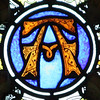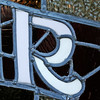Me and Truman Capote
There's a new (supposedly very good) movie out about Truman Capote just released, so this seems to be the perfect time to tell this story ...
I was going to the University of Colorado in the 80's and, much to my surprise, one day there was an announcement that Truman Capote was coming to speak. I was mildly shocked to see this coming from a school with such a weak English department, and although I wasn't that familiar with the bulk of his writing (I'm still not), I felt he was the best living American short-story writer. I simply had to go.
I was dirt poor, but that didn't stop me from dropping by the bookstore in the student union and spending my last $5 on a paperback copy of Breakfast at Tiffany's on the off-chance I might be able to get him to sign it.
I got to the talk about 15 minutes before the start and was surprised at how empty the ballroom was. I took a second row, center seat and as I waited they blocked down the room size to make space not seem so vacant. When Capote took the stage, there was no way there were 100 people in the audience.
When he came on, several things were immediately apparent. One was he more-than-a-little flaming gay -- all the things I'd heard about him seemed like under-exaggerations compared to his actual presence. Another was that he obviously wasn't comfortable with speaking in front of a crowd, even one this small. Yet another was he seemed very old and frail -- he'd been very sick recently and it showed.
The biggest one, by far, was he was having a hell of a time just trying to function in the limelight. He was planning on reading some of his work, but the stage boneheads at the university hadn't checked the set-up ahead of time. He stood flummoxed by not only not being able to see, but due to mic misadjustments, unable to talk with amplification.
For an amazing amount of time, maybe three minutes (which seems like a month when you're sitting and watching it), he at first struggled, then pleaded, then whined that he couldn't get anything to work. And amazingly, the tech crew did nothing to help him. Nothing. Not a thing. No action. No lighting changes. No voices from above. Nothing. All I could think was, "I can't believe I'm sitting here watching this happen."
And then I decided I couldn't.
I walked up on stage and started fiddling with the microphone and got it adjusted properly for him. Truman thought I was a stage tech so he started midly berating me, and this, in turn, brought out the real stage techs -- so I launched on them.
"Here's what you losers need to do. Turn up the audience lights, turn down the stage lighting. He'll be able to see the audience and read his books. We'll be able to hear him talk, which oh, by the way, is the reason we're here."
Capote laughed and, amazingly, the stage techs immediately did everything I said.
Except for the fact that it was a living, breathing Truman Capote in front of us, the talk itself was uninteresting. He read one work after another in a deadpan effete monotone with practically no personal interjections of any kind. I had to chant to myself, "This is important. This will never happen again," just to keep from wondering how much longer he was going to rattle on.
At the end of the speech, they announced he was going to be signing in the room next door. Since I was sitting near the front, this meant I would be stuck at the back of the signing line.
But maybe not. I knew that particular venue really well, so I just hung out for a few minutes and then tried the secret side-door. I was surprised to find it open and peeking in, I could see Truman Capote, sitting by himself at a table.
I walked over, introduced myself and asked him to sign my book, which he readily did.
"You're the one who helped me out there, aren't you?"
"Yes, I am. I hope it didn't throw you off, but I just couldn't sit there and see no one help you. I mean, how does that conversation with my dad go? 'How was Truman Capote?' 'Oh, he was great except for the hour where he couldn't read or talk and I could have helped him, but didn't because he was Truman Capote.'"
He laughed. "Why don't you sit down?"
It's not like he has to ask twice. I pull up a chair and just bat around pleasantries until I say, "You collect paperweights, right? I heard your first one came from Colette."
And his face just lights up "Why yes!" And he pulls a paperweight out of his sport coat and sits it on the table. (I read later that he'd carry them with him when he traveled to feel more at ease.)
My mom was a paperweight collector and without even touching it, I ask, "A Baccarat sulphide?"
You'd thought I'd told him he'd just won the Nobel Prize for Literature. He, literally, squealed with delight and we spent the next 15 minutes talking paperweights.
The standing crowd was let in and I got up to leave. Truman stood and as I went to shake his hand he clenched mine with both of his. He said, "I've really enjoyed this conversation with you. I really needed it."
I said, "Truman, all you've done is give me a story that'll last the rest of my life."
He smirked and said just a little suggestively, "Then it's been good for both of us."
We both laughed and I left, never to see Truman Capote again.
I was going to the University of Colorado in the 80's and, much to my surprise, one day there was an announcement that Truman Capote was coming to speak. I was mildly shocked to see this coming from a school with such a weak English department, and although I wasn't that familiar with the bulk of his writing (I'm still not), I felt he was the best living American short-story writer. I simply had to go.
I was dirt poor, but that didn't stop me from dropping by the bookstore in the student union and spending my last $5 on a paperback copy of Breakfast at Tiffany's on the off-chance I might be able to get him to sign it.
I got to the talk about 15 minutes before the start and was surprised at how empty the ballroom was. I took a second row, center seat and as I waited they blocked down the room size to make space not seem so vacant. When Capote took the stage, there was no way there were 100 people in the audience.
When he came on, several things were immediately apparent. One was he more-than-a-little flaming gay -- all the things I'd heard about him seemed like under-exaggerations compared to his actual presence. Another was that he obviously wasn't comfortable with speaking in front of a crowd, even one this small. Yet another was he seemed very old and frail -- he'd been very sick recently and it showed.
The biggest one, by far, was he was having a hell of a time just trying to function in the limelight. He was planning on reading some of his work, but the stage boneheads at the university hadn't checked the set-up ahead of time. He stood flummoxed by not only not being able to see, but due to mic misadjustments, unable to talk with amplification.
For an amazing amount of time, maybe three minutes (which seems like a month when you're sitting and watching it), he at first struggled, then pleaded, then whined that he couldn't get anything to work. And amazingly, the tech crew did nothing to help him. Nothing. Not a thing. No action. No lighting changes. No voices from above. Nothing. All I could think was, "I can't believe I'm sitting here watching this happen."
And then I decided I couldn't.
I walked up on stage and started fiddling with the microphone and got it adjusted properly for him. Truman thought I was a stage tech so he started midly berating me, and this, in turn, brought out the real stage techs -- so I launched on them.
"Here's what you losers need to do. Turn up the audience lights, turn down the stage lighting. He'll be able to see the audience and read his books. We'll be able to hear him talk, which oh, by the way, is the reason we're here."
Capote laughed and, amazingly, the stage techs immediately did everything I said.
Except for the fact that it was a living, breathing Truman Capote in front of us, the talk itself was uninteresting. He read one work after another in a deadpan effete monotone with practically no personal interjections of any kind. I had to chant to myself, "This is important. This will never happen again," just to keep from wondering how much longer he was going to rattle on.
At the end of the speech, they announced he was going to be signing in the room next door. Since I was sitting near the front, this meant I would be stuck at the back of the signing line.
But maybe not. I knew that particular venue really well, so I just hung out for a few minutes and then tried the secret side-door. I was surprised to find it open and peeking in, I could see Truman Capote, sitting by himself at a table.
I walked over, introduced myself and asked him to sign my book, which he readily did.
"You're the one who helped me out there, aren't you?"
"Yes, I am. I hope it didn't throw you off, but I just couldn't sit there and see no one help you. I mean, how does that conversation with my dad go? 'How was Truman Capote?' 'Oh, he was great except for the hour where he couldn't read or talk and I could have helped him, but didn't because he was Truman Capote.'"
He laughed. "Why don't you sit down?"
It's not like he has to ask twice. I pull up a chair and just bat around pleasantries until I say, "You collect paperweights, right? I heard your first one came from Colette."
And his face just lights up "Why yes!" And he pulls a paperweight out of his sport coat and sits it on the table. (I read later that he'd carry them with him when he traveled to feel more at ease.)
My mom was a paperweight collector and without even touching it, I ask, "A Baccarat sulphide?"
You'd thought I'd told him he'd just won the Nobel Prize for Literature. He, literally, squealed with delight and we spent the next 15 minutes talking paperweights.
The standing crowd was let in and I got up to leave. Truman stood and as I went to shake his hand he clenched mine with both of his. He said, "I've really enjoyed this conversation with you. I really needed it."
I said, "Truman, all you've done is give me a story that'll last the rest of my life."
He smirked and said just a little suggestively, "Then it's been good for both of us."
We both laughed and I left, never to see Truman Capote again.










1 Comments:
that's interesting -- I read it differently -- and instead of indifference picked up on a compassion that made my heart ache.
sign of good storytelling.
Post a Comment
<< RETURN TO B1-66ER'S ENTIRE WORLD